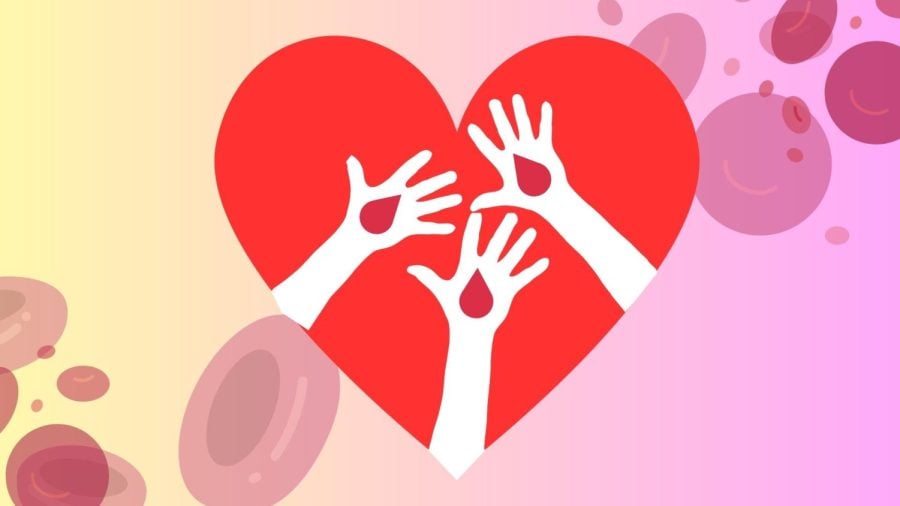Mariah Scott discusses sickle cell disease, diversity in blood donations
Illustration by Kristen Axtman, Joanna Hou, Jessica Ma, Joanna Hou, and Samantha Powers
One in 13 Black and African Americans carry the trait for sickle cell disease. Because sickle cell is a recessive trait, both parents must pass on the trait for it to be expressed.
May 28, 2023
The Northwestern chapter of the University Blood Initiative hosted Mariah Scott, research coordinator for the advocacy nonprofit Sick Cells, for a talk about the importance of diversity in blood donations Thursday.
Sickle cell disease is a blood mutation that leads to reduced oxygen flow throughout the body, causing intense pain and bone and organ damage. The disease affects about 100,000 Americans, according to the Sickle Cell Disease Foundation.
“People with sickle cell disease have this mutation where their red blood cells kind of look like a crescent moon, ” she said. “Because of this, (the sickle cells) cause blockage of blood vessels.”
She said sickle cell disease affects 1 in every 365 Black and African Americans in the U.S. However, one in 13 African Americans carry the recessive trait, meaning someone must inherit the trait from both parents in order for it to be active. Though it is most common among people of African descent, Scott said sickle cell also exists in other areas with warmer climates like the Caribbean and the Mediterranean.
No cure exists for sickle cell disease, Scott said, but there are several treatments available, including blood transfusions. People with sickle cell disease receive these during pre-surgical procedures to raise hemoglobin levels, among other reasons.
Diversity in blood donations is important because of alloimmunization — a phenomenon where blood transfusions stop working, Scott said. This mostly happens when the blood donations aren’t similar to the receiver’s blood type, she added. About 30% of sickle cell patients experience alloimmunization.
Ethnicities and races often have more similar blood “tags,” so it is best for a patient to receive blood from people in the same racial group, Scott said. The UK, which has an alloimmunization rate of 70%, matches blood donations by tracking with certain blood markers. But this contributes to higher rates of alloimmunization, she said.
A 2011 Emory study found that 16% of blood donations are from Black people, and Scott said there should be more Black donors. Scott also said people who carry the sickle cell recessive trait often falsely believe they cannot donate blood.
Scott shared her experiences with sickle cell disease. As a two-year old, she had her spleen removed because the blood flow to that organ stopped. Scott explained the pain of vaso-occlusive crisis, a sickle cell symptom when tissue becomes deprived of oxygen.
“If you ever get your blood drawn, you know that tourniquet they use,” she said. “Imagine that tourniquet tied so tight, where it is cutting off your circulation all over your body and then being stabbed with needles.”
Weinberg junior Julien Rentsch, president of NU UBI, helped organize the event. He said he thought Scott was an informative speaker.
“I wasn’t aware of how much diversity matters in the treatment of people with sickle cell disease,” Rentsch said.
Weinberg junior Jacob Jarding, the education chair for NU UBI, said he didn’t know how common the sickle cell trait was before this event.
He added events like this spread awareness about structural inequity in the medical system, like when Scott spoke about bone marrow transplants necessary for many sickle cell disease patients.
“There is just structural inequity there,” Jarding said. “Which doesn’t just go for blood cell donation, but also bone marrow donation.”
Email: KristenAxtman2025@u.northwestern.edu
Twitter: @KristenAxtman1
Related Stories:
— Versiti Blood Center partners with Northwestern Athletics to promote blood drive
— Student Blood Services holds quarterly blood drive
— Amid national blood shortage, here’s how Evanston residents can donate



